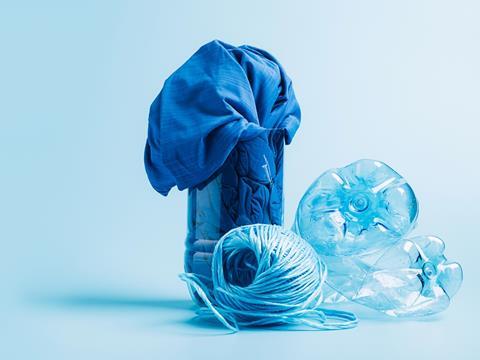
In a statement sent to Packaging Europe, the European Fruit Juice Association (AIJN), Natural Mineral Waters Europe (NMWE), and UNESDA Soft Drinks Europe warn against the downcycling of PET from beverage bottles and call on the European Commission to mandate a ‘first refusal’ policy to enable the beverage industry is to meet its circularity targets.
The three groups represent various segments of the beverage industry and its connections with other European institutions. According to each organisation’s objectives, their focus is on promoting a safe and reliable supply of beverages while working with regulatory bodies to ensure compliance with environmental and sustainability initiatives. UNESDA Soft Drinks Europe, for example, has committed to 100% recycled PET packaging by 2030.
In the statement, the groups point out that high-quality, food-grade recycled PET is in demand, but that an increasing number of non-food contact industries are using recycled PET from beverage bottles to make new products. On top of this, there are global supply chain issues that have exacerbated the shortage of raw materials and led to price hikes for the plastics industry, which is likely to be felt downstream.
Giving the example of clothes and toys made from recycled PET bottles, the organisations say that these items are rarely recycled back into the same product after use, but rather end up in landfill or incinerators. This is downcycling, which the groups add is at the expense of a closed or circular recycling loop for the beverage industry.
“The shift towards truly circular products and packaging should be fair,” the groups argue. “Increased use of recycled content by one sector should not be achieved at the expense of breaking another sector’s closed loop.”
While the article acknowledges the efforts made by other industries to boost sustainability, it emphasises that the use of recycled PET is not “automatically” circular and, in fact, can have negative environmental consequences for the beverage industry. In addition, the groups claim that this disincentivises other industries from finding innovative solutions to achieve circularity, which could undermine the EU’s objectives for a circular economy.
In particular, the Single Use Plastics Directive (SUPD) proposes a 90% collection target for beverage PET bottles, with a mandate for all beverage bottles to contain at least 30% recycled content by 2030. The groups say that not only is the industry committed to reaching these targets, but that it also intends to “create a closed loop for our bottles to accelerate a truly circular economy for beverage packaging in Europe”.
The organisations add that the beverage industry is currently funding the collection and recycling of PET bottles, but that it does not receive the recycled materials from this that would facilitate bottle-to-bottle recycling.
The AIJN, NMWE, and UNESDA Soft Drinks Europe therefore state that a legal framework is urgently needed to secure the beverage industry’s future and ensure that recycled packaging material stays within a closed loop for all industries where targets have been mandated.
As part of this call for a legal framework, the organisations believe that the European Commission should introduce a right of first refusal mechanism when revising the EU Packaging and Packaging Waste Directive (PPWD). According to the group, this would involve beverage producers having “fair and necessary access” to recycled material that has come from packaging that the industry itself placed on the market.
The groups say this will have three advantages: the ability to produce new packaging that complies with EU food safety standards, support for the industry’s efforts to achieve EU targets, and the prevention of PET being downcycled into non-food contact applications.
There appears to be some agreement from outside of the industry. MEP Maria Spyraki, co-chair of the Intergroup on Climate Change, Biodiversity and Sustainable Development, comments: “For the industry to reuse its recycled packaging material in a closed loop is clearly the way forward.
“This will contribute substantially to resource efficiency. Therefore, measures to facilitate producers’ access to their recycled material must be encouraged. Circularity is a key component of the Green Deal supporting Europe’s journey towards carbon neutrality.”
This is not the first time that industry representatives have called on the EU to revise policies relating to sustainability. The EuPC, in particular, has been critical over the uneven implementation of the SUPD. The bioplastics industry likewise seems skeptical about the EU Green Deal’s assessment of the impact and viability of different plastics.
The AIJN, NMWE, and UNESDA Soft Drinks Europe conclude that legal recognition of the beverage industry’s right to access recycled content put on the market by beverage producers is a “fundamental precondition” for a circular economy.













